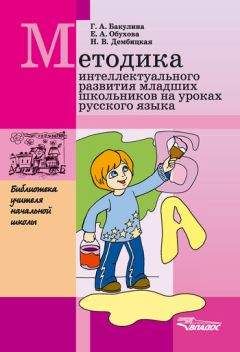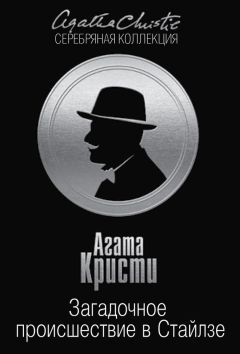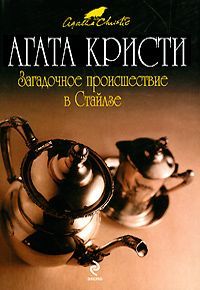Агата Кристи - Загадочное происшествие в Стайлзе [with w_cat]
[1868] "Yes?"
[1869] "It is, as you see, highly magnified. You may have noticed a sort of blur extending all across the picture. I will not describe to you the special apparatus, dusting powder, etc., which I used. It is a well-known process to the police, and by means of it you can obtain a photograph of the finger-prints of any object in a very short space of time. Well, my friend, you have seen the finger-marks-it remains to tell you the particular object on which they had been left."
[1870] "Go on-I am really excited."
[1871] "Eh bien! Photo No. 3 represents the highly magnified surface of a tiny bottle in the top poison cupboard of the dispensary in the Red Cross Hospital at Tadminster-which sounds like the house that Jack built!"
[1872] "Good heavens!" I exclaimed. "But what were Lawrence Cavendish's finger-marks doing on it? He never went near the poison cupboard the day we were there!"
[1873] "Oh, yes, he did!"
[1874] "Impossible! We were all together the whole time."
Poirot shook his head.
[1875] "No, my friend, there was a moment when you were not all together. There was a moment when you could not have been all together, or it would not have been necessary to call to Monsieur Lawrence to come and join you on the balcony."
[1876] "I'd forgotten that," I admitted. "But it was only for a moment."
[1877] "Long enough."
"Long enough for what?"
[1878] Poirot's smile became rather enigmatical.
[1879] "Long enough for a gentleman who had once studied medicine to gratify a very natural interest and curiosity."
[1880] Our eyes met. Poirot's were pleasantly vague. He got up and hummed a little tune. I watched him suspiciously.
[1881] "Poirot," I said, "what was in this particular little bottle?"
[1882] Poirot looked out of the window.
[1883] "Hydro-chloride of strychnine," he said, over his shoulder, continuing to hum.
[1884] "Good heavens!" I said it quite quietly. I was not surprised. I had expected that answer.
[1885] "They use the pure hydro-chloride of strychnine very little- only occasionally for pills. It is the official solution, Liq. Strychnine Hydro-clor. that is used in most medicines. That is why the finger-marks have remained undisturbed since then."
[1886] "How did you manage to take this photograph?"
[1887] "I dropped my hat from the balcony," explained Poirot simply. "Visitors were not permitted below at that hour, so, in spite of my many apologies, Mademoiselle Cynthia's colleague had to go down and fetch it for me."
[1888] "Then you knew what you were going to find?"
[1889] "No, not at all. I merely realized that it was possible, from your story, for Monsieur Lawrence to go to the poison cupboard. The possibility had to be confirmed, or eliminated."
[1890] "Poirot," I said, "your gaiety does not deceive me. This is a very important discovery."
[1891] "I do not know," said Poirot. "But one thing does strike me. No doubt it has struck you too."
[1892] "What is that?"
[1893] "Why, that there is altogether too much strychnine about this case. This is the third time we run up against it. There was strychnine in Mrs. Inglethorp's tonic. There is the strychnine sold across the counter at Styles St. Mary by Mace. Now we have more strychnine, handled by one of the household. It is confusing; and, as you know, I do not like confusion."
[1894] Before I could reply, one of the other Belgians opened the door and stuck his head in.
[1895] "There is a lady below, asking for Mr Hastings."
"A lady?"
[1896] I jumped up. Poirot followed me down the narrow stairs. Mary Cavendish was standing in the doorway.
[1897] "I have been visiting an old woman in the village," she explained, "and as Lawrence told me you were with Monsieur Poirot I thought I would call for you."
[1898] "Alas, madame," said Poirot, "I thought you had come to honour me with a visit!"
[1899] "I will some day, if you ask me," she promised him, smiling.
[1900] "That is well. If you should need a father confessor, madame" -she started ever so slightly-"remember, Papa Poirot is always at your service."
[1901] She stared at him for a few minutes, as though seeking to read some deeper meaning into his words. Then she turned abruptly away.
[1902] "Come, will you not walk back with us too, Monsieur Poirot?"
[1903] "Enchanted, madame."
[1904] All the way to Styles, Mary talked fast and feverishly. It struck me that in some way she was nervous of Poirot's eyes.
[1905] The weather had broken, and the sharp wind was almost autumnal in its shrewishness. Mary shivered a little, and buttoned her black sports coat closer. The wind through the trees made a mournful noise, like some great giant sighing.
[1906] We walked up to the great door of Styles, and at once the knowledge came to us that something was wrong.
[1907] Dorcas came running out to meet us. She was crying and wringing her hands. I was aware of other servants huddled together in the background, all eyes and ears.
[1908] "Oh, m'am! Oh, m'am! I don't know how to tell you-"
[1909] "What is it, Dorcas?" I asked impatiently. "Tell us at once."
[1910] "It's those wicked detectives. They've arrested him-they've arrested Mr. Cavendish!"
[1911] "Arrested Lawrence?" I gasped.
[1912] I saw a strange look come into Dorcas's eyes.
"No, sir. Not Mr. Lawrence-Mr. John."
[1913] Behind me, with a wild cry, Mary Cavendish fell heavily against me, and as I turned to catch her I met the quiet triumph in Poirot's eyes.
[1914] Chapter XI. The Case For the Prosecution
[1915] The trial of John Cavendish for the murder of his stepmother took place two months later.
[1916] Of the intervening weeks I will say little, but my admiration and sympathy went out unfeignedly to Mary Cavendish. She ranged herself passionately on her husband's side, scorning the mere idea of his guilt, and fought for him tooth and nail.
[1917] I expressed my admiration to Poirot, and he nodded thoughtfully.
[1918] "Yes, she is of those women who show at their best in adversity. It brings out all that is sweetest and truest in them. Her pride and her jealousy have-"
[1919] "Jealousy?" I queried.
[1920] "Yes. Have you not realized that she is an unusually jealous woman? As I was saying, her pride and jealousy have been laid aside. She thinks of nothing but her husband, and the terrible fate that is hanging over him."
[1921] He spoke very feelingly, and I looked at him earnestly, remembering that last afternoon, when he had been deliberating whether or not to speak. With his tenderness for "a woman's happiness," I felt glad that the decision had been taken out of his hands.
[1922] "Even now," I said, "I can hardly believe it. You see, up to the very last minute, I thought it was Lawrence!"
[1923] Poirot grinned.
"I know you did."
"But John! My old friend John!"
[1924] "Every murderer is probably somebody's old friend," observed Poirot philosophically. "You cannot mix up sentiment and reason."
[1925] "I must say I think you might have given me a hint."
[1926] "Perhaps, mon ami, I did not do so, just because he *WAS your old friend."
[1927] I was rather disconcerted by this, remembering how I had busily passed on to John what I believed to be Poirot's views concerning Bauerstein. He, by the way, had been acquitted of the charge brought against him. Nevertheless, although he had been too clever for them this time, and the charge of espionage could not be brought home to him, his wings were pretty well clipped for the future.
[1928] I asked Poirot whether he thought John would be condemned. To my intense surprise, he replied that, on the contrary, he was extremely likely to be acquitted.
"But, Poirot-" I protested.
[1929] "Oh, my friend, have I not said to you all along that I have no proofs. It is one thing to know that a man is guilty, it is quite another matter to prove him so. And, in this case, there is terribly little evidence. That is the whole trouble. I, Hercule Poirot, know, but I lack the last link in my chain. And unless I can find that missing link-" He shook his head gravely.
[1930] "When did you first suspect John Cavendish?" I asked, after a minute or two.
[1931] "Did you not suspect him at all?"
"No, indeed."
[1932] "Not after that fragment of conversation you overheard between Mrs. Cavendish and her mother-in-law, and her subsequent lack of frankness at the inquest?"
"No."
[1933] "Did you not put two and two together, and reflect that if it was not Alfred Inglethorp who was quarrelling with his wife-and you remember, he strenuously denied it at the inquest-it must be either Lawrence or John. Now, if it was Lawrence, Mary Cavendish's conduct was just as inexplicable. But if, on the other hand, it was John, the whole thing was explained quite naturally."
[1934] "So," I cried, a light breaking in upon me, "it was John who quarrelled with his mother that afternoon?"
"Exactly."
[1935] "And you have known this all along?"
[1936] "Certainly. Mrs. Cavendish's behaviour could only be explained that way."
[1937] "And yet you say he may be acquitted?"
Poirot shrugged his shoulders.
[1938] "Certainly I do. At the police court proceedings, we shall hear the case for the prosecution, but in all probability his solicitors will advise him to reserve his defence. That will be sprung upon us at the trial. And-ah, by the way, I have a word of caution to give you, my friend. I must not appear in the case."
"What?"
[1939] "No. Officially, I have nothing to do with it. Until I have found that last link in my chain, I must remain behind the scenes. Mrs. Cavendish must think I am working for her husband, not against him."
[1940] "I say, that's playing it a bit low down," I protested.
[1941] "Not at all. We have to deal with a most clever and unscrupulous man, and we must use any means in our power- otherwise he will slip through our fingers. That is why I have been careful to remain in the background. All the discoveries have been made by Japp, and Japp will take all the credit. If I am called upon to give evidence at all"-he smiled broadly- "it will probably be as a witness for the defence."
[1942] I could hardly believe my ears.
[1943] "It is quite en regle[49]," continued Poirot. "Strangely enough, I can give evidence that will demolish one contention of the prosecution."
[1944] "Which one?"
[1945] "The one that relates to the destruction of the will. John Cavendish did not destroy that will."
[1946] Poirot was a true prophet. I will not go into the details of the police court proceedings, as it involves many tiresome repetitions. I will merely state baldly that John Cavendish reserved his defence, and was duly committed for trial.
[1947] September found us all in London. Mary took a house in Kensington[50], Poirot being included in the family party.
[1948] I myself had been given a job at the War Office, so was able to see them continually.
[1949] As the weeks went by, the state of Poirot's nerves grew worse and worse. That "last link" he talked about was still lacking. Privately, I hoped it might remain so, for what happiness could there be for Mary, if John were not acquitted?
[1950] On September 15th John Cavendish appeared in the dock at the Old Bailey[51], charged with "The Wilful Murder of Emily Agnes Inglethorp," and pleaded "Not Guilty."
[1951] Sir Ernest Heavywether, the famous K. C., had been engaged to defend him.
[1952] Mr. Philips, K. C., opened the case for the Crown.
[1953] The murder, he said, was a most premeditated and cold-blooded one. It was neither more nor less than the deliberate poisoning of a fond and trusting woman by the stepson to whom she had been more than a mother. Ever since his boyhood, she had supported him. He and his wife had lived at Styles Court in every luxury, surrounded by her care and attention. She had been their kind and generous benefactress.
[1954] He proposed to call witnesses to show how the prisoner, a profligate and spendthrift, had been at the end of his financial tether, and had also been carrying on an intrigue with a certain Mrs. Raikes, a neighbouring farmer's wife. This having come to his stepmother's ears, she taxed him with it on the afternoon before her death, and a quarrel ensued, part of which was overheard. On the previous day, the prisoner had purchased strychnine at the village chemist's shop, wearing a disguise by means of which he hoped to throw the onus of the crime upon another man-to wit, Mrs. Inglethorp's husband, of whom he had been bitterly jealous. Luckily for Mr. Inglethorp, he had been able to produce an unimpeachable alibi.

![Агата Кристи - Загадочное происшествие в Стайлзе [with w_cat]](/uploads/posts/books/no-image.jpg)


